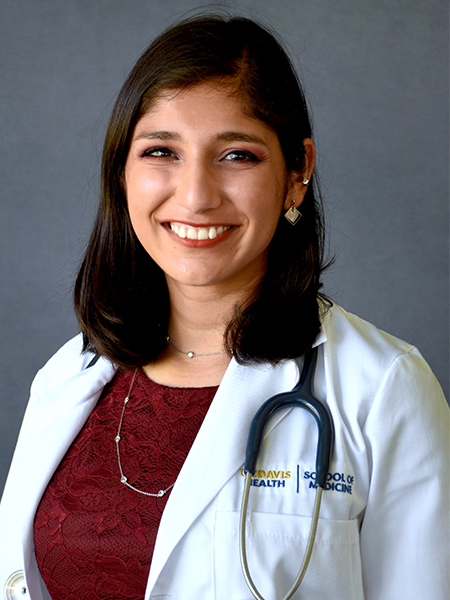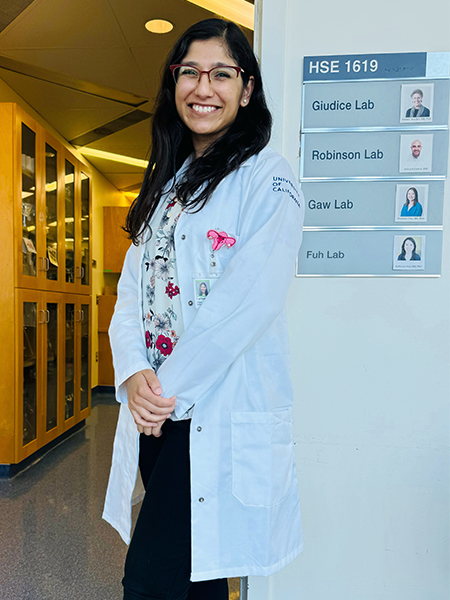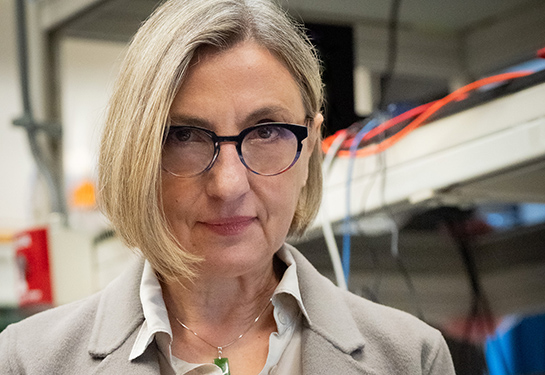Medical student earns prestigious fellowship to help women with endometriosis
Ferheen Abbasi is being mentored by nationally known professors in search of drug to treat endometriosis
Several years before enrolling at the UC Davis School of Medicine, Ferheen Abbasi worried a lot about a friend’s debilitating medical condition — a monthly pain worse than menstrual cramps that would leave her bedridden for days.

Her friend had endometriosis, a hard-to-diagnose disease in which tissue that makes up the uterine lining grows outside of the uterine wall. It causes severe pelvic pain. For some women, endometriosis leads to infertility. Although symptoms can be managed by medication or surgery, there is no cure.
There is also little research into the disease — something Abbasi is eager to change.
Abbasi recently completed her third year of medical school in Sacramento. Now, she has stepped off campus to spend a year conducting research on endometriosis at UC San Francisco, under nationally known expert Linda C Giudice.
The research fellowship is being funded by the Physician-Scientist Support Foundation, which selected just five medical students nationwide to work on different projects across the country.
“I’m so happy I received this fellowship,” Abbasi said. “Endometriosis is such an understudied, underfunded field, and I feel like I’ll now be part of the movement that people like Dr. Giudice are involved in.”
This academic year, Abbasi will be creating organoids from endometrial tissue — essentially miniature organs in a petri dish. The in-vitro cell cultures will be used to eventually test potential drugs to reverse inflammation in the endometrial tissue of patients with endometriosis.
Lack of research sparks curiosity about endometriosis
Abbasi, who grew up in Santa Clara, has always been interested in science. She studied molecular and cell biology at UC Berkeley. That’s also where she became intrigued by her friend’s ordeal with endometriosis.
It took her friend about 14 years to find the right doctor to diagnose the disease.
“This really sparked my curiosity, especially after realizing how little research there is about endometriosis,” Abbasi said. “There are no easy tests for endo, no blood tests, no biopsies. The only way to officially diagnose it is surgery. And the treatments are also extremely limited.”
Learning about endometriosis from her friend, and later in a reproductive health master’s degree program in Japan, strengthened Abbasi’s resolve to become a physician-scientist.
She came to UC Davis and enrolled in the honors pathway Academic Research Careers for Medical Doctors (ARC-MD). Students in ARC-MD typically are in medical school for five years because they dedicate a year to research.
ARC-MD also offers intense mentorship, a unique curriculum and community engagement within a supportive learning environment. The program is designed to train the next generation of medical school faculty physician scientists.
Seeking treatment for an incurable condition
One of Abbasi’s career goals is to help people with endometriosis — or come up with a way to prevent it altogether.

“I want to investigate the very disease my patients have, I want to be an advocate for my family and friends who are suffering from endometriosis,” she said.
When Abbasi was seeking research opportunities for this year, she emailed Giudice, the national endometriosis expert at UCSF, then crossed her fingers. “She’s such a powerhouse,” Abbasi said. “I was really excited and hopeful she would reply back, and the fact that she did — and enthusiastically — brought me so much joy.”
Giudice is an OB-GYN and director of the UCSF-Stanford Endometriosis Center for Discovery, Innovation, Training, and Community Engagement.
She’s excited to have Abbasi in her lab to research such an important subject, especially at a time when the overall number of physicians who conduct research in the United States is declining. Giudice calls Abbasi “an amazing individual: smart, thoughtful, and curious and enthusiastic about science and medicine.”
Abbasi is co-mentored by Fred Meyers, distinguished professor emeritus of internal medicine at UC Davis and director of ARC-MD. Giudice and Meyers have formed a powerful mentoring family to advance Ferheen’s career.
“We are indeed fortunate to have her as a member of our lab,” Giudice said, “and we are committed to her learning experiences and success as a physician scientist in the future.”
Related stories



